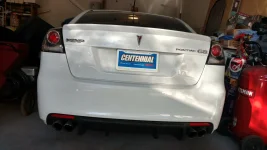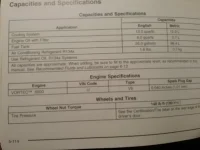L J
SUPER STAR!
- Joined
- Nov 24, 2018
- Messages
- 2,371
- Reaction score
- 671
- Points
- 113
- Buick Ownership
- Regal TourX
Noticed in my TourX owners manual that capacities for engine oil was one qt. less for non AWD models? May be incorrect like many other things in manual. Of course no non AWD TourX?
Assuming additional cooler and/or plumbing differences.
Assuming additional cooler and/or plumbing differences.







